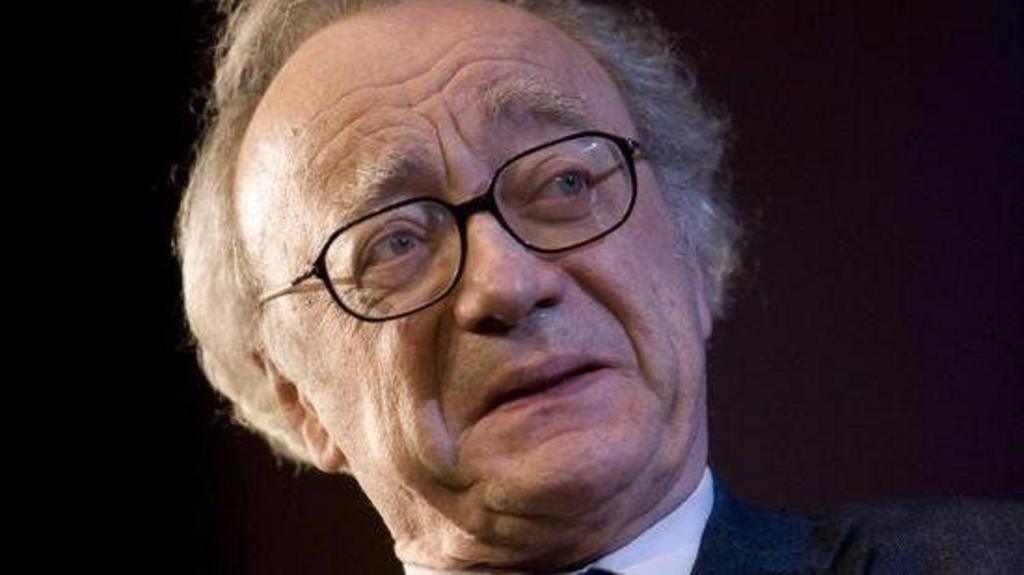Renowned pianist Alfred Brendel, one of the world’s most celebrated interpreters of Beethoven, passed away peacefully in London on Tuesday at the age of 94, his representatives confirmed. He was surrounded by loved ones.
A statement from his spokesperson expressed that Brendel “will be remembered and celebrated with deep gratitude by his family – partner Maria Majno, children Irene, Doris, Adrian, Sophie, and Katharina, and his four grandchildren.”
Beyond his musical achievements, Brendel was a highly acclaimed essayist and poet, known for his sharp wit and insightful observations. He often recounted his earliest musical memory: winding up a gramophone playing opera records and attempting to sing along.
Born July 5, 1931, in Wiesenberg, northern Moravia (now Czech Republic), his childhood experiences navigating war-torn Austria significantly shaped his unique worldview. Despite lacking a musical family background and initial aptitude, he pursued piano lessons in Yugoslavia, later studying at the Graz Conservatory in Austria.
His formal training concluded at age 16. Further development came from masterclasses and independent exploration, a path he consciously chose. “A teacher can be too influential,” he once remarked. “Being self-taught, I learned to distrust anything I hadn’t figured out myself.”
Making his debut in Graz in 1948, he subsequently won the prestigious Concorso Busoni prize. Initially specializing in Liszt, he broadened his repertoire to encompass central European composers, deliberately avoiding modern music. He prioritized his own interpretive approach, focusing on beloved classical composers.
His international career led him to London in 1971, where he made his home. He recorded Beethoven’s Piano Concertos four times, culminating in a 1999 performance with the Vienna Philharmonic Orchestra under Sir Simon Rattle, a long-standing collaborator.
Knighted in 1989 (an honorary title due to his Austrian citizenship), Brendel’s full artistic stature emerged around the age of 45. His performances were characterized by emotional depth within a classical framework, revealing a profound understanding of composers’ intentions.
Later life brought physical limitations, but this allowed him to appreciate the richness of less physically demanding works by Bach and Schumann, alongside his cherished sonatas and his “beloved Beethoven,” for whom “his admiration grew by the day, if not the hour.”
His quirky personality extended beyond the concert stage. His Who’s Who entry listed hobbies as “unintentional humor and the collection of kitsch,” reflected in his home’s eccentric decor. His written works, including Musical Thoughts and Afterthoughts (1976) and One Finger Too Many (1998), revealed a wider intellectual range, blending musical insights with humor and cultural observations.
He received the Herbert von Karajan Music Prize in 2008 and gave his final concert in Vienna that same year, a performance of Mozart’s Piano Concerto No. 9, cited by The Daily Telegraph as one of the decade’s greatest cultural moments. Subsequently, he experienced significant hearing loss, as reported by DW, yet continued lecturing, giving readings, and teaching masterclasses.
Brendel’s life exemplified a compelling blend of artistic discipline and intellectual curiosity. The reserved concert pianist concealed an irreverent observer, finding humor in life’s absurdities and celebrating humanity’s capacity for laughter.
The Fresh Prince actor says taking an “honest look at myself” inspired a return to music.
Songwriter Amy Wadge said the US copyright trial had “haunted” her for more than a decade.
The juror gave conflicting information about where he lived and has now been replaced.
Elliot James Reay says he is keen to tour after becoming a social media star with his retro music.
Kylie Minogue spots boy’s sign and invites him to perform one of her hits at Birmingham concert.

